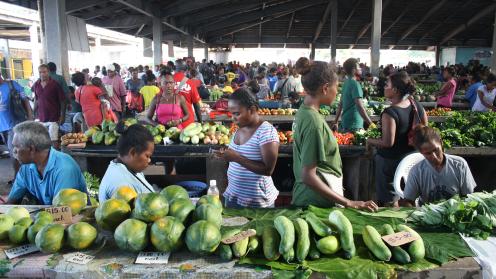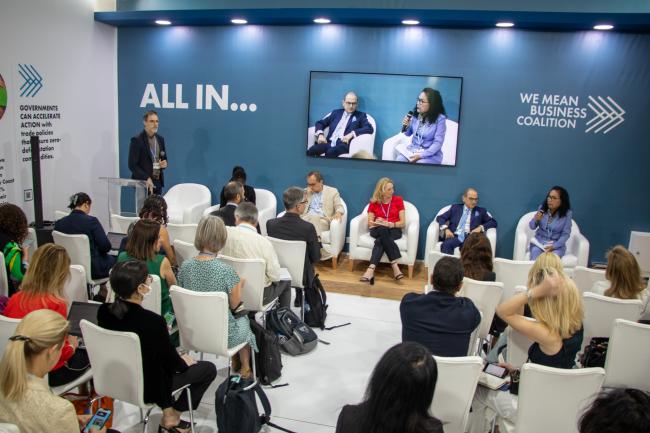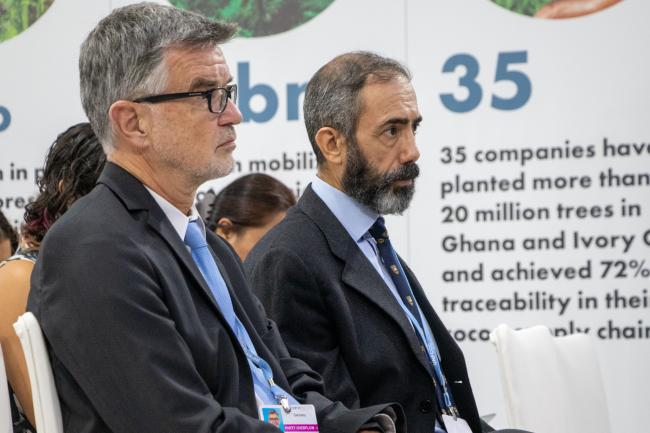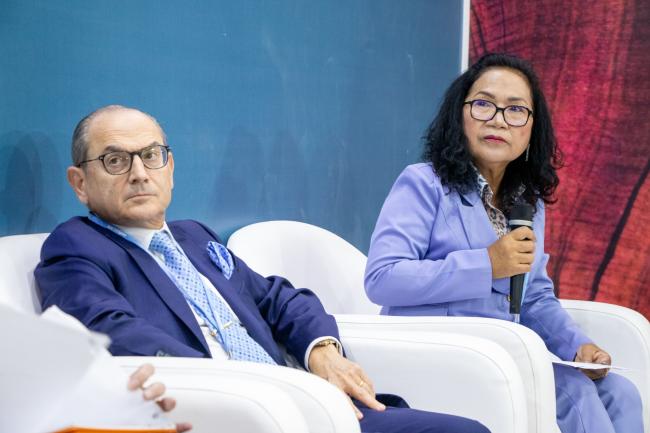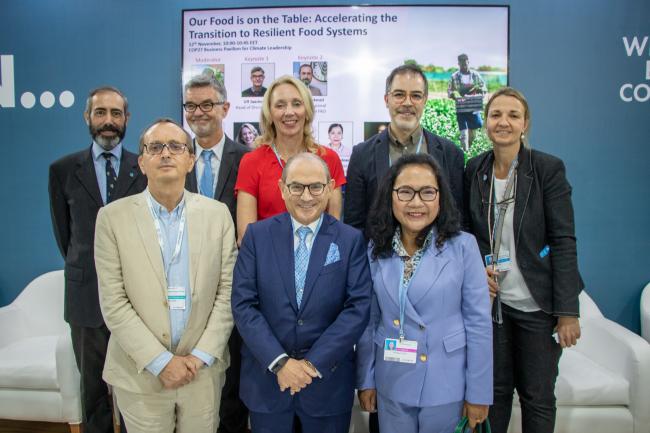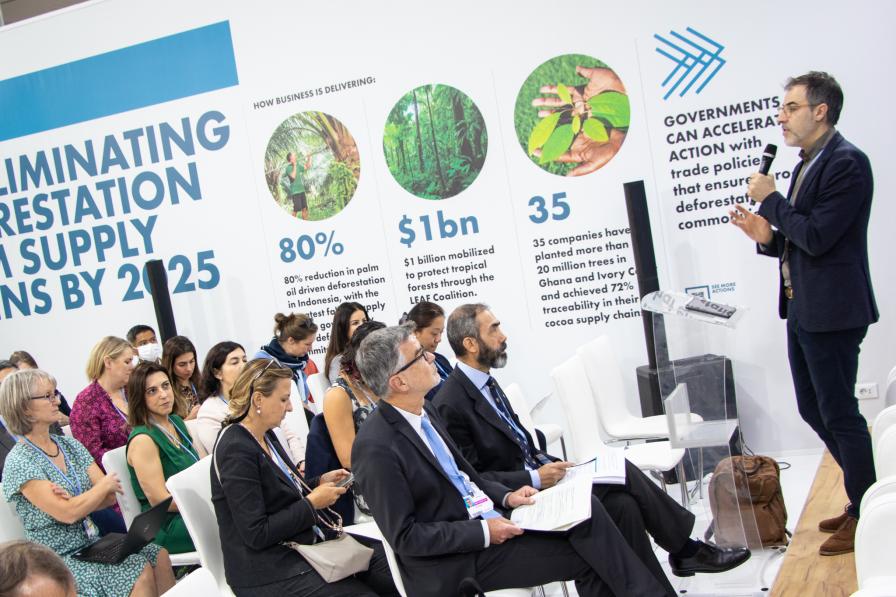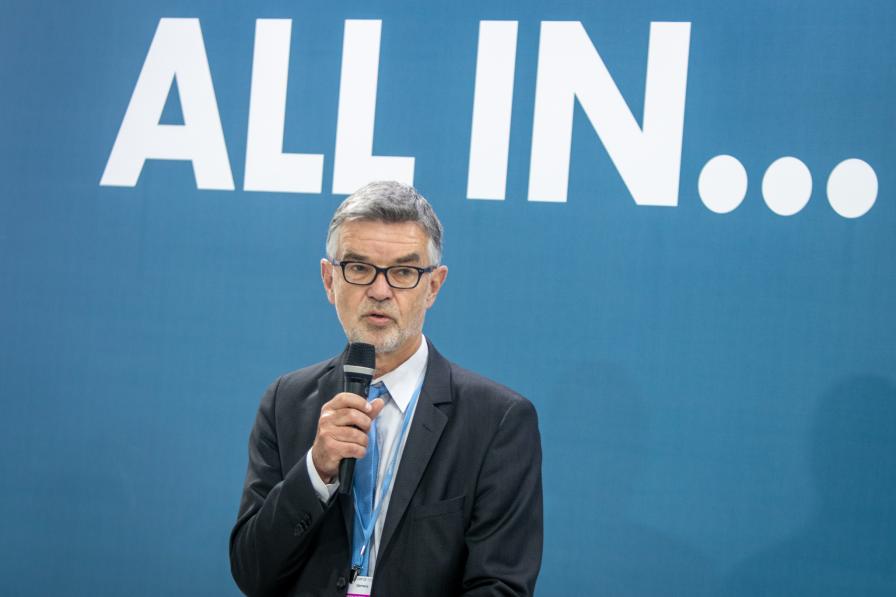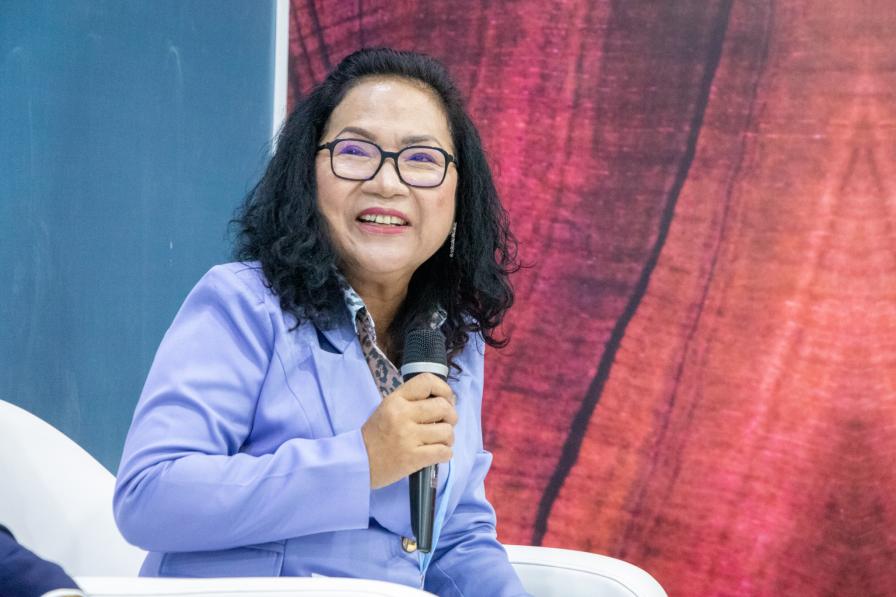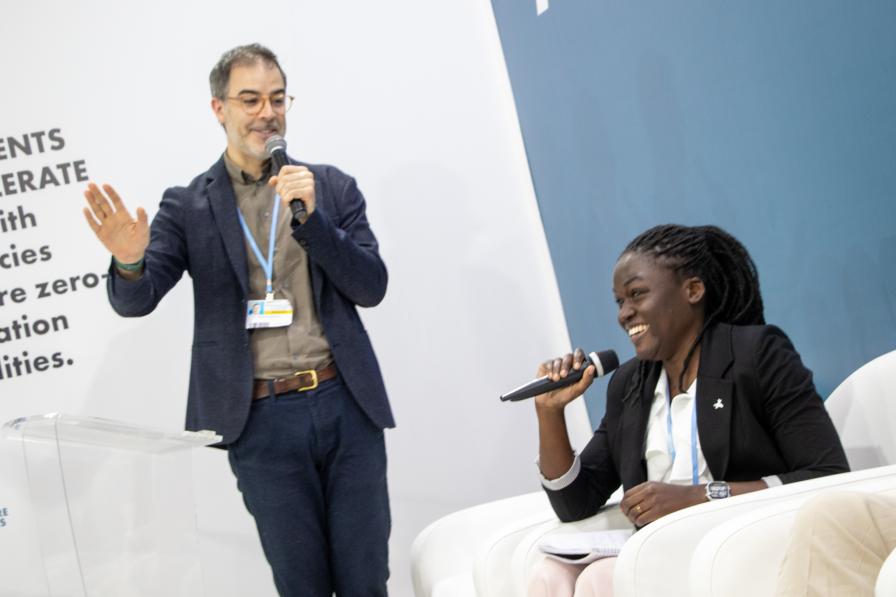About
This COP27 event highlighted the need for food to “be on the table,” on the agenda, at COP 27 and beyond.
Food systems are facing unprecedented strain, and climate change is intensifying these pressures. Indeed, the climate crisis is making extreme weather events part of everyday reality, disrupting food production and threatening food security. Further, transformation of food systems is critical to achieving countries’ Nationally Determined Contributions (NDCs) and National Adaptation Plans (NAPs). Conversely, NDCs and NAPs provide entry points to identifying pathways for transformative change. This event highlighted the need for food to “be on the table,” on the agenda, at COP 27 and beyond.
In moderating the event, Tony Siantonas, Director, World Business Council for Sustainable Development (WBCSD), introduced the UNDP-FAO programme Scaling up Climate Ambition on Land Use and Agriculture through Nationally Determined Contributions and National Adaptation Plans (SCALA). The programme, he added, supports the implementation of NDCs and NAPs to scale up climate change ambition on agriculture, and connect with the business sector in this effort.
In his welcome remarks, Ulf Jaeckel, Federal Ministry for Environment, Nature Conservation and Nuclear Safety and Consumer Protection (BMUV), Germany, highlighted Germany’s plans for adaptation and the programmes they support, particularly the SCALA programme, noting in particular its enlistment of the business sector in scaling up agricultural policies to align with updated NDCs and prioritize mitigation and adaptation. SCALA, he continued, can be a catalyst for businesses to develop food solutions at a global scale. He urged the audience to play a role in these solutions because, he stressed, it is everyone’s responsibility “to respond to climate change which needs bold commitments and actions.”
Sergei Nakouzi, Food and Agriculture Organization of the UN (FAO), emphasized that connecting food systems and climate action is a key priority for FAO, noting that agriculture is now prioritized in updated NDCs and that many countries have specified the private sector’s important role in the process. He urged businesses to: invest in agricultural supply chains to make crops more resilient; assist by delivering innovative solutions; scale up research and the development of precision farming; and contribute private capital to finance the transition towards sustainable agriculture. Because the agriculture sector benefits everyone and we should “leave no one behind,” there is an urgent need to strengthen its climate resilience.
Magdi Batao, Nestlé, reiterated the urgency to transform food systems as, he warned, the world would otherwise not be able to sustainably feed nine billion people by 2050. He explained how Nestlé is committed to playing their role in ensuring sustainable food systems and to taking innovative measures in the process.
Henri Bruxelles, Danone, stressed that food companies not only have a “moral responsibility” but also a “business resilience responsibility” to take action. He cited regenerative agriculture as an example of practices that should be scaled up, and emphasized the role of the private sector in building a roadmap for the food sector, creating conditions and incentives for farmers to establish regenerative practices. “I truly believe at this moment, we need to shift from big ideas and big commitments, to very concrete plans, delivery, and impact and this only happens on the ground with each country,” he concluded.
Hanneke Faber, Unilever, called for policymakers to integrate agriculture in their national plans by “removing regulatory barriers.” She believed that governments should “repurpose subsidies” and mandate “climate-smart practices” to encourage farming that is not harmful to the environment. She pointed out that businesses, however, are moving faster than governments and taking things into their own hands: “The time for pilots is over,” she emphasized.
Chan Phaloeun, Ministry of Agriculture, Cambodia, shared Cambodia’s progress and commitments to address climate change issues in the country, which include updating their NDC and engaging with the private sector to change agriculture in the country. The government has started supporting businesses through public-private partnerships, because, as she pointed out, Cambodia’s private sector is “not yet strong enough.” She also discussed working with food companies to develop climate-smart practices that respect forest commodities and sustainable agriculture practices, with the hope these will also result in poverty reduction in Cambodia.
Loureen Akinyi Awuor, KENAFF, emphasized the central role of farmers in transforming food systems, pointing out that “they have to be at the center'' of talks on the matter. Any food system initiative must be locally led, she added. If the private sector is going to invest in agriculture, she continued, it must take local conditions into account, including local and traditional knowledge. She said if farmers are made to work towards a just transition, they need to also reap its benefits because, as she pointed out, “Until we take farmers as partners and not as target beneficiaries, we’re not going to go anywhere.”
The SCALA programme is funded by the German Federal Ministry for the Environment, Nature Conservation, Nuclear Safety and Consumer Protection (BMUV) through the International Climate Initiative (IKI).
Organizer: WBCSD, in collaboration with FAO
Contact: Liva Kaugure | Liva.Kaugure@fao.org
For more information: www.fao.org/in-action/scala/en
To receive free coverage of global environmental events delivered to your inbox, subscribe to the ENB Update newsletter.
All ENB photos are free to use with attribution. For photos from this side event, please use: Photo by IISD/ENB | Matthew TenBruggencate.
